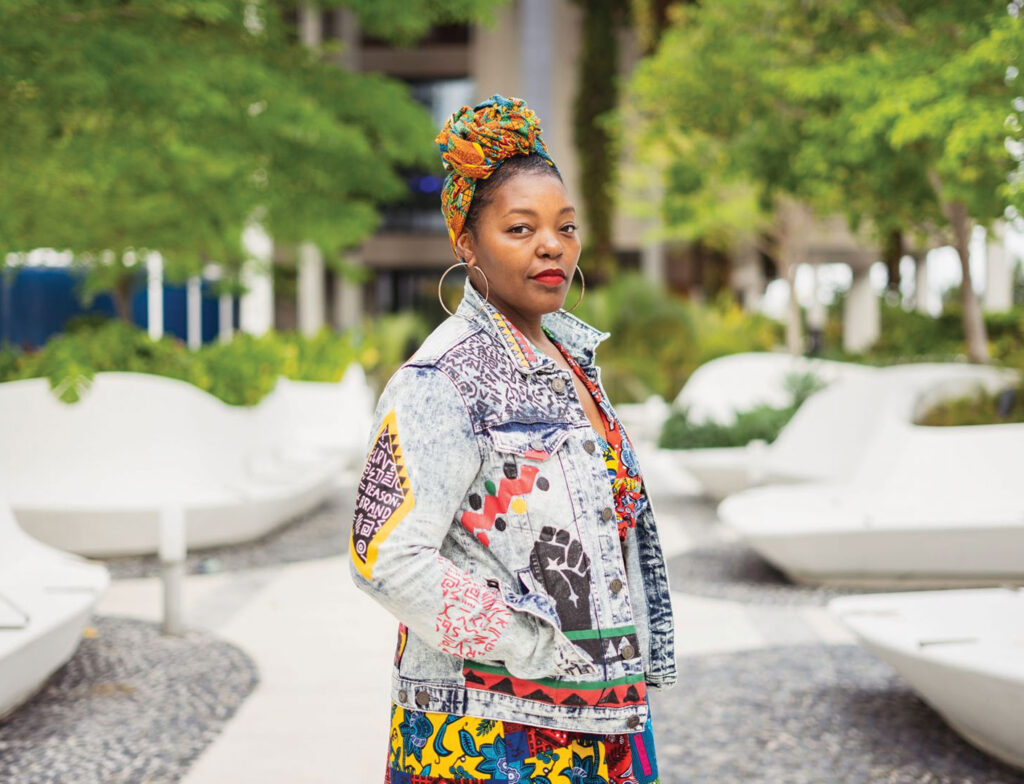Literary censorship challenged in school library
Inspirational book to remain in North Attleborough

Olivia Gatwood knew the book she co-authored was controversial. She was aware that “Woke: A Young Poet’s Call to Justice,” a collection of poems for kids, had been challenged in Texas school libraries, but she had no idea of the recent dispute it had stirred in a Massachusetts town.
Last month, North Attleborough Schools Superintendent John Antonucci returned “Woke: A Young Poet’s Call to Justice” to an elementary school library after previously removing it.
In a statement, Antonucci said the book received a formal challenge. After meeting with a committee of parents, teachers and administrators, he decided that “the book was best approached by students in a facilitated or structured manner” after evaluating “the age-appropriateness of the book in a K-5 environment.”
The book, written by Mahogany L. Brown and Elizabeth Acevedo along with Gatwood, features poems that touch on privilege, intersectional identity, gender, sexuality, race and climate change, topics Gatwood said “[threaten] the conservative educational goals.”
Although Antonucci claimed there was not a ban per se, he had removed the book from children’s reach, reassigning it to the teachers’ resource library. The move met with widespread community outrage, which led to the reversal. Antonucci apologized for his original decision, adding that it “missed the mark.”
Gatwood said that when a book “elicits such a strong negative reaction,” there are “two sides of the coin” for the author.
“One is that it sort of can be kind of thrilling because it means that you wrote something that moves people in a certain way. It means that your work…has the ability to make a difference,” she said. “But at the same time, [it] means that child is being denied the ability to read that book.”
“Woke: A Young Poet’s Call to Justice’” is just one of a host of works challenged or banned in school or public libraries in the last three years. Between Jan. 1 and Aug. 31, 2023, a record number of books were challenged across the U.S., most of them written by or about people of color or LGBTQIA+ people, according to preliminary data from the American Library Association via a report by its Office for Intellectual Freedom.
In Massachusetts, more than 50 books and graphic novels were challenged in 2023, some more than once, according to a list from the American Library Association obtained by the Banner. The list includes works such as “Gender Queer: A Memoir” and “Stamped (for Kids): Racism, Antiracism, and You.”
The American Civil Liberties Union of Massachusetts said it submitted a public records request after learning of the removal of “Woke: A Young Poet’s Call to Justice.”
In a letter dated Jan. 23, the ACLU of Massachusetts asked for “records showing the purported rationale for this act of censorship” and called for the school district to “restore this book to school shelves for the sake of an inclusive and non-discriminatory educational environment.”
Traci Griffith, the organization’s racial justice program director, said students have a right to learn from a diverse range of materials.
“Efforts to remove or restrict these books in school and public libraries — places that are central to our abilities to explore ideas, encounter new perspectives, and learn to think for ourselves — are misguided attempts to suppress that right,” she said.
Christina Dobbs, assistant professor at the Wheelock College of Education and Human Development at Boston University, said when school districts and libraries ban books, they risk signaling to students from “particular minoritized backgrounds” that their experiences are “somehow inappropriate for people to learn about, that they’re shameful, that they are problematic.”
She works on the Standing Committee Against Censorship of the National Council of Teachers of English and has contributed to This Story Matters, a database that provides “rationales” for why frequently banned or challenged books, such as Toni Morrison’s “The Bluest Eye,” should be taught in schools.
Dobbs said it’s crucial to define censorship clearly.
“When we talk about censorship, we’re not talking about parents saying, ‘I don’t want my own child to engage with a particular work,’” she said of her committee’s stance. “We’re talking about when the challenge asks that no one have access to a particular work.”
The Intellectual Freedom/Social Responsibility Committee of the Massachusetts Library Association defines censorship as a “change in the access status of material, based on the content of the work and made by a governing authority or its representatives.” This includes the removal of material or age and grade level changes.
Andrea Fiorillo, the chair of the committee, said the action taken by Antonucci was “absolutely” a form of censorship because it restricted access to the book for all grades.
Her organization has responded to the recent “unprecedented” increase in book bans and challenges by educating communities on censorship.
She said she noticed that people initially associated book bans with other states such as Florida and Texas. She added that growing awareness is why the North Attleborough community reacted the way it did.
The Massachusetts Library Association currently has four “freedom to read” bills before state legislatures that will “make censorship in schools harder for political or personal belief,” Fiorillo said.
“What we’re talking about isn’t just books being censored, it’s about people being silenced,” she said. “And the people who are being silenced in these three years are very clearly people of color and queer folks. So, it is a civil rights issue, as well as an intellectual freedom issue.”







